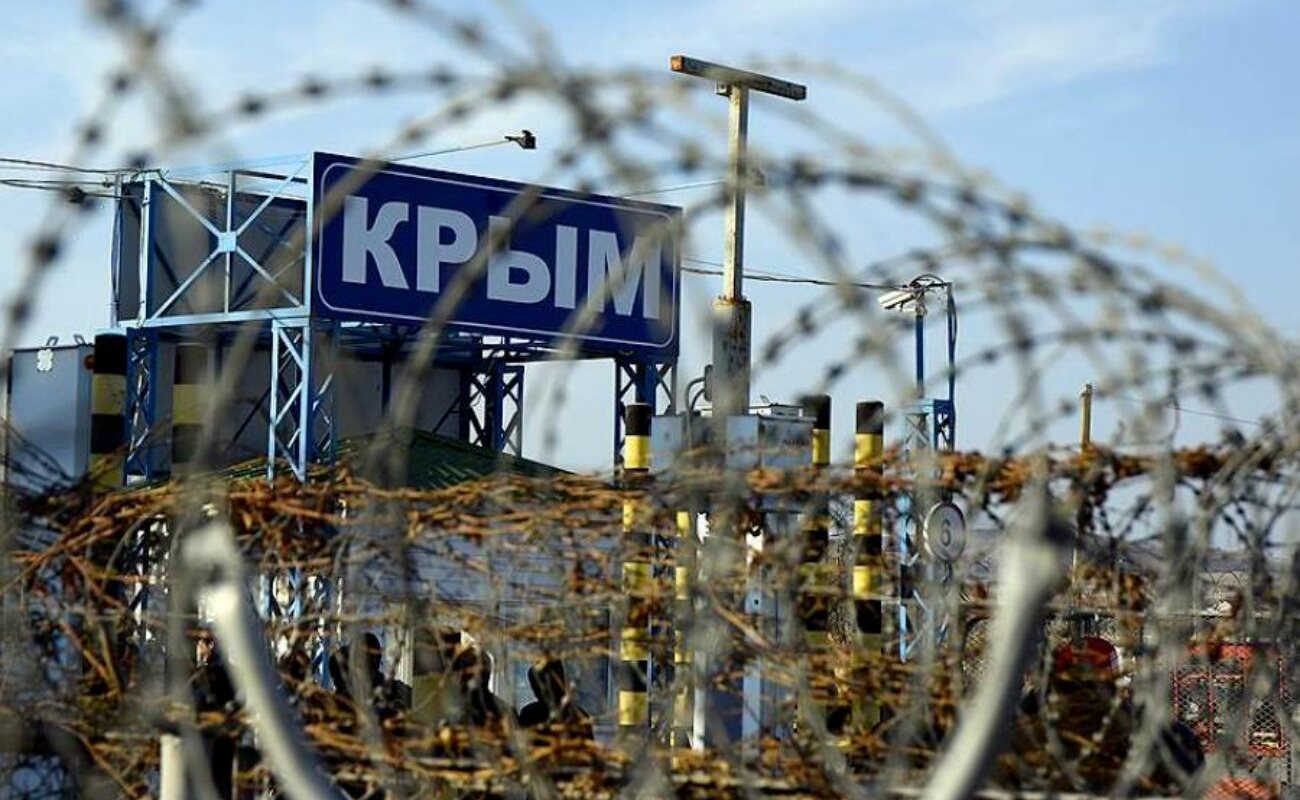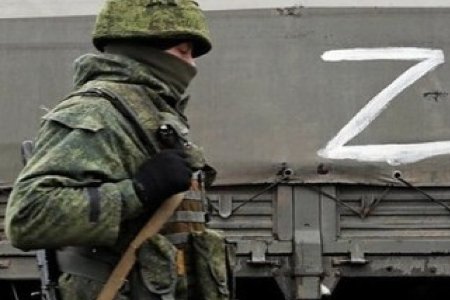
It was days before human rights monitors even identified the latest victim of Russia’s conveyor belt ‘treason trials’ in occupied Crimea., although the 32-year-old had received a massive 18-year sentence. Four days after the sentence was passed by the occupation ‘Crimean high court’ on 20 February 2025, Crimean Tribunal reported that the 32-year-old is Crimean Tatar Ruslan Mambetov. It also noted one crucial detail, namely that the young Crimean Tatar’s ‘arrest’ was reported in November 2024, over a month after he had been seized from the village of Semysotka on 3 October 2024. The only reason for such long periods where a person is held incommunicado, without any procedural status, is that the FSB needs to fabricate charges and extract ‘testimony’, almost always with the use of torture.
The result of such ‘work’ is reported, normally with the news of a long sentence, after a ‘trial’ which may, or may not, have lasted more than one ‘hearing’. On this occasion, the occupation ‘Crimean prosecutor’ announced on 20 February that or reported that an unnamed “32-year-old resident of Leninsky raion” had been found guilty of ‘state treason’ under Article 275 of Russia’s criminal code. The ‘court’ had purportedly established that the defendant had opposed Russia’s full-scale invasion of Ukraine (referred to here as its ‘special military operation’) and had, in June 2023, joined an organization of social media which had purported been created and coordinated by Ukraine’s Military Intelligence. The defendant was claimed to have, during the autumn on 2023 photographed and videoed places where the Russian armed forces are deployed in occupied Feodosia. A typical element of such indictments, even where opposition to Russia’s aggression is mentioned, is the assertion that the person received money for carrying out such “tasks”. The rest has been copy-pasted from any number of other such ‘trials’ in occupied parts of Ukraine. It is invariably asserted that such information (from the alleged photos and videos) could have been used by Ukraine to carry out armed strikes against the Russian armed forces, “that is, against the country’s security”.
The sentence, now known to have been passed by ‘judge’ Alla Khynkevych, is for 18 years in a maximum-security prison colony, followed by a further 18 months of restricted liberty. A fine of 100 thousand roubles was also imposed. This is by no means the first time that Khynkevych has taken part in handing down sentences which are, by definition, illegal as Russia is in violation of international law through its application of its own legislation on occupied territory. This is also the latest of many sentences which are almost certainly politically motivated, and where the defendant was deprived of fundament rights to a fair trial.
Given the extreme lack of information, it seems likely that Mambetov did not have an independent lawyer. All such ‘spying’ and ‘treason through spying trials’ are a favourite with Russia’s FSB as they make it possible to impose near total secrecy. Even where a person does have an independent lawyer, the person is forced to sign an agreement, on pain of criminal prosecution, to not disclose any details. Under such circumstances, it is extremely easy to put pressure on the defendant to simply admit to the charges. If Ruslan was offered a more lenient sentence for doing so, he was gravely deceived, as this sentence is huge even by the standards of Russia’s recent wave of such ‘trials’ on occupied territory.
Crimean Tribunal first noted reports of the ‘arrest’ from Russian propagandists, citing the FSB, on 8 November 2024. The propagandists referred to him as a “Ukrainian spy” and said that he was accused of passing the Ukrainian Security Service information about military sites and air-defence systems located in occupied Feodosia.
At that stage, Crimean Tribunal reported that Russia had seized over sixty supposed ‘spies’; ‘saboteurs’ or other ‘coordinators’ occupied Crimea over the previous six months. “Such rates, in the absence of other signs of activity on the peninsula by the Ukrainian Security Service casts in doubt the reality and justification for the charges laid. Court trials in such cases as a rule are held behind closed doors and it is not possible to assess the level of evidence, as well as the lack of torture.”
It became clear only on 24 February 2025, four days after the sentence, that Ruslan Mambetov had been seized on 3 October 2024. This almost certainly means that he was held incommunicado for over a month before the supposed ‘investigators’ admitted to his ‘detention’ and obtained a ‘ruling’ from the occupation ‘Kievsky district court’ remanding him in custody. There would be no reason for such secrecy and delay in pressing charges were there seriously any grounds for the accusations against Mambetov.
Crimean Tribunal had reported the sentence on 20 February, and the version presented by the Crimean FSB that the Crimean (as yet unnamed) had “begun to sympathise with the enemy” and that he had been “constantly attacked by Internet bots suggesting that he write and help”. He had, purportedly, voluntarily contacted Ukraine’s Defence Ministry and received the task to make a video near the Feodosia oil base and sea port. This, Crimean Tribunal notes drily, was interpreted in the indictment as constituting “information about military sites and air-defence systems in the region.”
As well as the strong grounds for fearing that Ruslan Mambetov was tortured and deprived of any vestiges of a fair trial, the case is also suspicious because the indictment is so close to countless others brought over the last year against men and women seized from occupied parts of Ukraine.



